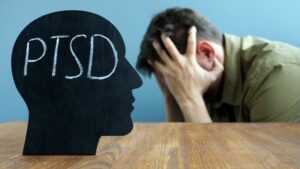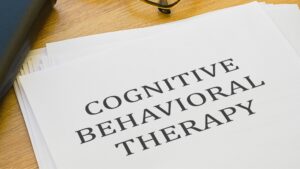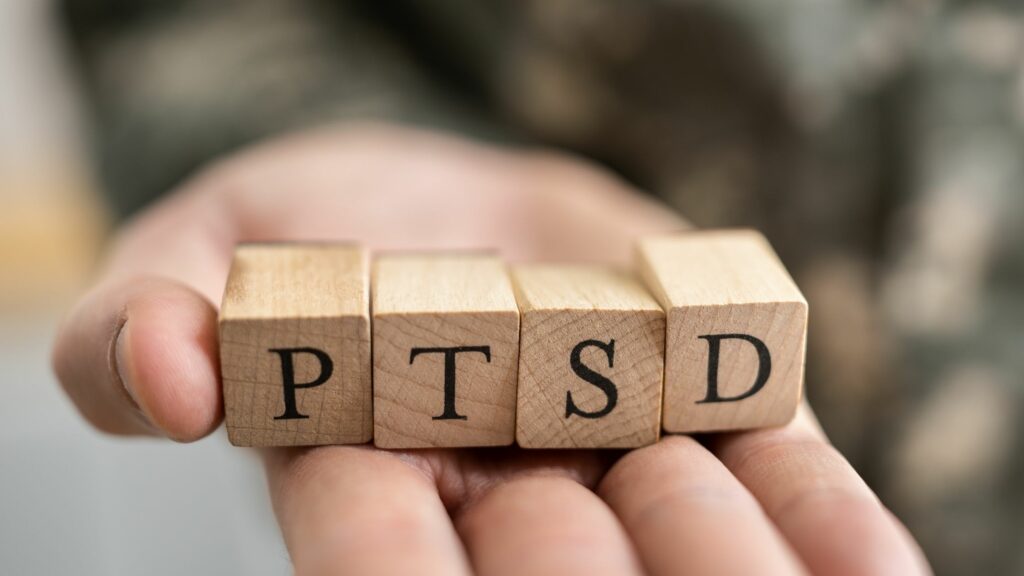Post-traumatic stress disorder, or PTSD, is a mental health condition that can occur after someone has experienced or witnessed a traumatic event. Symptoms can include flashbacks, nightmares, and intrusive thoughts about the traumatic event. It can be very difficult to live, and it can also be difficult to understand if you have never experienced it yourself.
In this blog post, we will discuss what PTSD is, how it is treated, and some of the myths and misconceptions about it. We hope that this information will help you better understand this often misunderstood disorder.
Contents
What Is PTSD?

Post-traumatic stress disorder is a type of anxiety disorder. It can occur after you’ve seen or experienced a traumatic event that involved the threat of injury or death.
This can make you feel stressed and afraid after the danger is over. It can make it hard to continue with your daily life and activities. It can also cause physical symptoms.
This post-traumatic stress disorder isn’t just a problem for adults. It can occur in children and teens, too.
You may hear people talk about “shell shock” or “battle fatigue” when referring to PTSD. But these terms are no longer used to describe the disorder.
Symptoms Of PTSD?
The symptoms can divide into four categories: reliving the event, avoiding situations that remind you of the event, feeling numb, and having more negative beliefs and feelings.
- Reliving the Event
People with PTSD often re-experience the trauma in their thoughts during the day or in nightmares when they go to sleep. They may feel like they are going through the event again. This is called a “flashback.” Flashbacks can be so strong that people feel like they are really happening again.
Some people with PTSD hear, see, or smell things that remind them of the event and have physical reactions, such as a pounding heart, sweating, or trouble breathing.
- Avoiding Situations That Remind You Of The Event
People often try to avoid anything that reminds them of the trauma. They may avoid people, places, activities, objects, and thoughts.
They may not want to talk about the event or be around people who remind them of it. It can be hard for people with PTSD to keep up with their usual activities.
- Feeling Numb
After a traumatic event, it is common for people to feel scared and alone. People often have trouble feeling positive emotions. They may feel numb inside and have trouble connecting with other people.
- Negative Beliefs And Feelings
People with PTSD often see themselves and the world around them differently than they did before the trauma. They may have negative beliefs about themselves, other people, or the world (e.g., “I am bad,” “No one can trust,” “The world is completely dangerous”).
These are only a few of the symptoms that someone might experience after going through a traumatic event. So, if you or someone you know is experiencing any of these symptoms, it is important to seek professional help.
however, PTSD is a real and serious condition that can be effectively treated. There is no shame in seeking help and there is hope for recovery.
What Can Cause PTSD?

Most people who go through a traumatic event don’t develop PTSD. But if the trauma is severe and lasts for a long time, you may be at risk for the disorder.
It isn’t clear why some people get this post-traumatic stress disorder and others don’t. But it is thought that certain factors may play a role:
- A history of mental illness
- A history of abuse or trauma
- A family history of mental illness
- Going through a very stressful event
- Not having a good support system after the event
It can happen to anyone. It isn’t just something that happens to people in the military or people who have been in car accidents. This can happen to anyone who has gone through a traumatic event.
If you think you might have PTSD, it’s important to get help. Talk to your doctor or mental health professional. They can help you get the treatment you need.
Risk Factors for PTSD

There are several risk factors that may make a person more likely to develop PTSD. These include:
- A history of trauma or exposure to traumatic events
- A family history of mental illness
- Chronic health problems
- Stressful life circumstances
- Weak social support network
If you have any of these risk factors, it does not mean that you will definitely develop PTSD. However, it is important to be aware of them so that you can get help if you do start to experience symptoms.
It can happen to anyone who has been through a traumatic event. It is not your fault and you are not weak if you develop PTSD. In fact, it takes a lot of strength to deal with the symptoms and start the road to recovery.
If you think you might have PTSD, it is important to seek professional help. A mental health professional can diagnose PTSD and provide you with treatment that can help you recover. Treatment for PTSD often includes therapy and medication.
Myths And Misconceptions About PTSD

There are many myths and misconceptions about post-traumatic stress disorder. Here are some common ones:
- PTSD is only for people who have been in combat
While PTSD can develop after experiencing a life-threatening event, it can also occur after other types of trauma, such as witnessing a death, being the victim of violence or sexual assault, or surviving a natural disaster.
- PTSD is only for adults
Children and adolescents can also develop PTSD after experiencing a traumatic event. Symptoms may be different in children than in adults, but they can still be debilitating.
- You have to be physically injured to develop PTSD
PTSD does not require physical injury; it can occur even if you were not physically harmed.
- PTSD is a sign of weakness
PTSD is not a sign of weakness; it is a normal reaction to an abnormal event. Anyone can develop PTSD, regardless of their strength or resilience.
- If you have PTSD, you will always have it
While there is no cure for PTSD, there are effective treatments available that can help people manage their symptoms and live successful and fulfilling lives. Recovery is possible.
- If you talk about your trauma, it will make things worse
Talking about your trauma with a therapist or other mental health professional can actually help you heal. Avoiding the topic will likely make things worse.
These are just a few of the myths and misconceptions. If you or someone you know is struggling with PTSD, please seek professional help. PTSD can be a debilitating condition, but with proper treatment, people can and do recover. There is hope.
Diagnosis of PTSD
To diagnose PTSD, a mental health professional will ask you questions about your symptoms and experiences. They may do a:
- Physical Exam to check for any medical problems that could be causing your symptoms.
- Do a physical evaluation to make sure that your symptoms are not being caused by a physical health problem.
- Mental Health Evaluation to ask questions about your thoughts, feelings, and behavior.
- The mental health professional will want to know about the traumas you have experienced and how they have affected you.
You may be asked to do some tests, such as:
- Cognitive and Memory Tests – To see how well you remember things.
- Personality Test – To learn more about your personality and how it affects your thoughts and behaviors.
- If you are diagnose with PTSD, the mental health professional will work with you to create a treatment plan. The goal of treatment is to help you manage your symptoms and improve your quality of life.
How PTSD Is Treated?

For treating PTSD, medication and/or therapy are often recommended. The type of therapy that seems to be the most effective is called cognitive-behavioral therapy. This kind of therapy helps people change their thinking about the event that caused the issue.
It also helps them manage their emotions better so they don’t feel as overwhelmed by them. Medications can help with symptoms like anxiety and depression that are common in people. They can also help with sleep problems and nightmares.
If you think you might have PTSD, it’s important to talk to a doctor or mental health professional who can diagnose it and talk to you about your treatment options. Getting treatment can make a big difference in how well you’re able to manage your symptoms and live your life.
Conclusion
In conclusion, PTSD is a very real and serious disorder that can have a profound effect on an individual’s life. If you or someone you know is struggling with PTSD, there is help available.
There are many treatment options available that can help people manage their symptoms and live happy, productive lives. So, if you think you may suffer from this issue, please reach out to a mental health professional for help.
A Word From Therapy Mantra
Your mental health — Your psychological, emotional, and social well-being — has an impact on every aspect of your life. Positive mental health essentially allows you to effectively deal with life’s everyday challenges.
At TherapyMantra, we have a team of therapists who provide affordable online therapy to assist you with issues such as depression, anxiety, stress, workplace Issues, addiction, relationship, OCD, LGBTQ, and PTSD. You can book a free therapy or download our free Android or iOS app.


